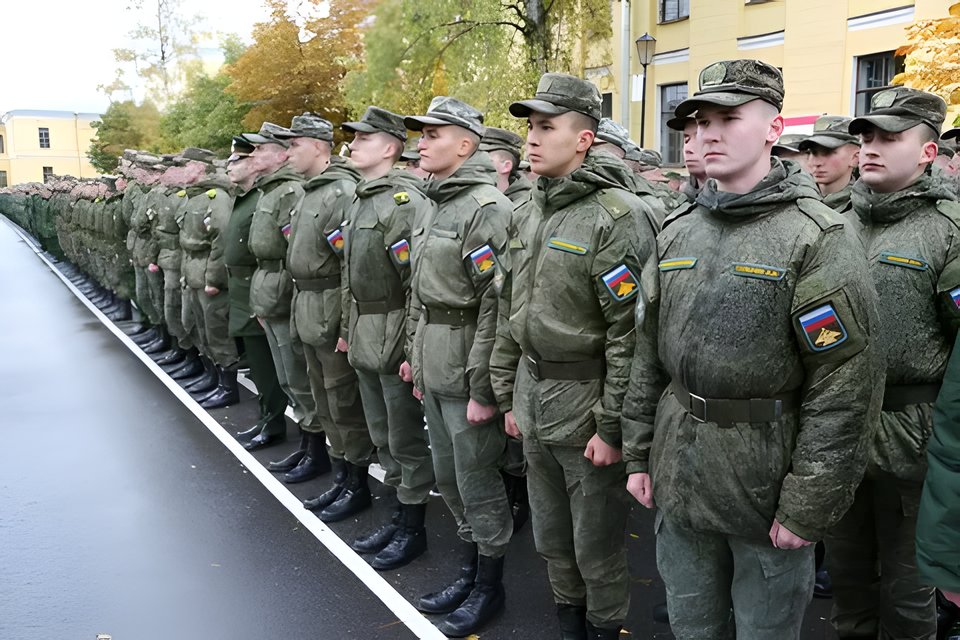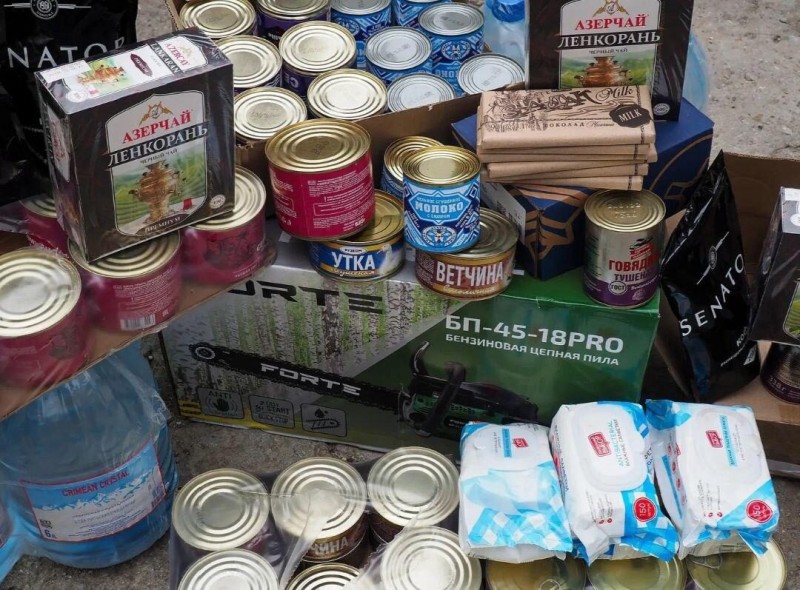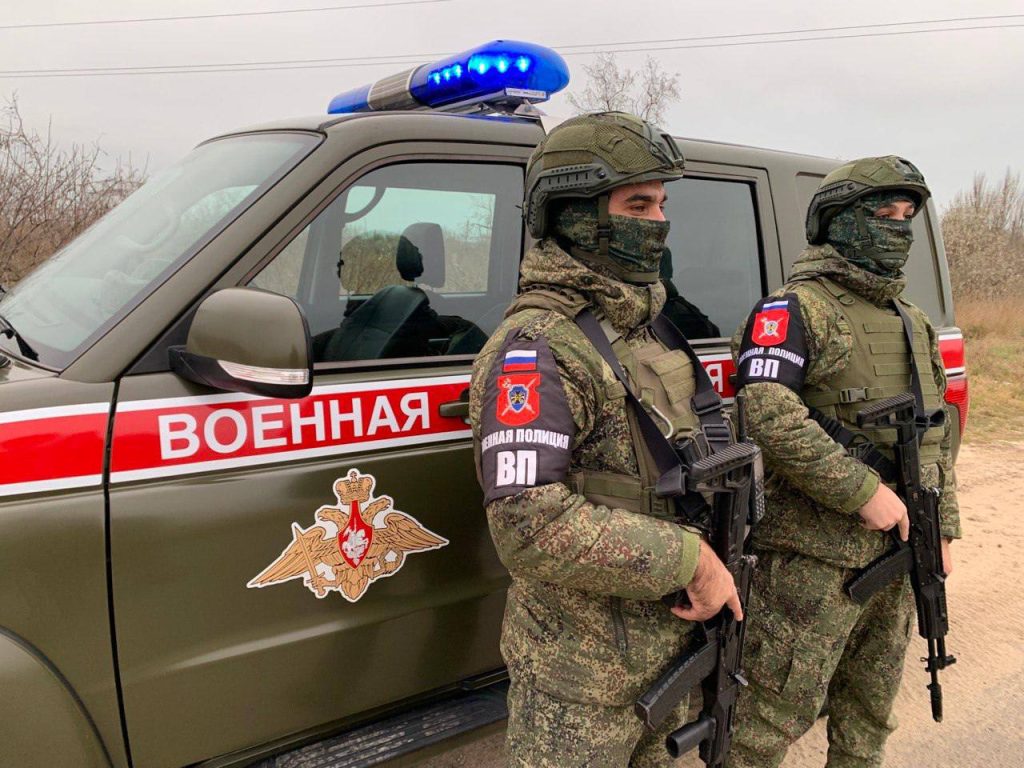1/ The Russian army has experienced a 20-fold increase in HIV cases compared to pre-war figures, according to Russian military doctors. Soldiers who have been infected with HIV and hepatitis C blame drug abuse and a widespread disregard for basic medical hygiene. ⬇️ 

2/ An article in the Russian Ministry of Defence's Military Medical Journal reports a huge increase in the number of soldiers with detected cases of HIV, and the likelihood of a much larger number of undetected cases.
3/ The vast majority of infections have happened among contract servicemen (99.8% of the total), with 93.5% being regular soldiers and sailors (93.5%), and the rest comprised of officers (4.4%), warrant officers and midshipmen (1.8%), and cadets (0.1%).
4/ The journal reports that the main reason is that a large number of infected men were accepted for service without being tested for HIV, despite this being against the rules.
https://x.com/ChrisO_wiki/status/1901922860085448841
5/ More than 60% of newly mobilised contract soldiers were previously registered with AIDS centres before they joined the army. However, they were not identified because there is no coordination between the Ministries of Health and Defence. Some also presented false certificates.
6/ The rate of infection is also reported to be increasing significantly in occupied regions of Ukraine, as well as border regions of Russia. This likely reflects the breakdown of medical services under Russian occupation, and infections passing between soldiers and civilians.
7/ Soldiers are now among the best-paid people in Russia and have become the largest single group purchasing "commercial sexual contacts", adding to the risk of HIV spreading into the civilian population.
8/ The journal warns against publicising the problem, as "reputational losses for the Ministry of Defence are possible in the event of the dissemination of relevant information by non-profit organizations and/or foreign agents."
9/ While the journal does not explain in detail how the infections have happened, Russian soldiers say that drug abuse and a widespread shortage of syringes have led to many infections. There have been many reports of them having to rely on relatives to provide medical supplies.
10/ A junior sergeant named Igor says that he's sure he was infected in a field hospital after being wounded near Bakhmut. "I was unconscious, and they operated on me live, as the nurses later said. But then they injected painkillers."
11/ "And they injected several soldiers at once from the same syringe – I think they either infected them that way or during the operation. It was such a mess there, no sterility at all – the tents and camp beds were all in the ground."
12/ "When I asked what kind of reusable disposable [syringe] this was, the nurse simply sent me away. She said: "Well, buy some for us, and then bring them here! You all need 200 syringes per day, where can I get them for you?!"
13/ Another soldier, Alexey, says that in his unit "at least half of the soldiers are infected with HIV and hepatitis".
14/ "There are loads of people here with hepatitis C and HIV. Some are drug addicts who say they got infected while they were civilians or in prison, and came straight here from there.
15/ "Some people on the front line shared a syringe with an infected comrade to inject morphine, and the comrade didn't even know [he was infected]. There is a shortage of everything there – painkillers and syringes.
16/ "They tell us that the reason is prostitutes, drugs and painkillers. But in fact, there is a shortage of everything – disposable syringes and sterile instruments (in hospitals).
17/ "At the assembly point, the situation was such that literally every second person had either hepatitis or HIV.
18/ "One guy from my company admitted that he definitely left for the Special Military Operation without HIV; he had a job where they were tested every month for everything possible.
19/ "A couple of months later, he was seriously wounded and ended up losing his left arm. He had surgery and went home for treatment, where they found HIV. He is sure that it was because they ‘worked with such instruments,’ that is, unsterile ones.
20/ "His arm was patched up in the medical unit right in the Special Military Operation zone. They operated around the clock, without sleep, at high speed — if there was any delay in the delivery of syringes and medicines, they didn't wait.
21/ "If you ask questions about sterility, they reply that otherwise they would not be able to save ‘so many lives.’ They choose life, even with infection, over death."
As Alexey's account indicates, drug use is a significant factor in the spread of disease among soldiers.
As Alexey's account indicates, drug use is a significant factor in the spread of disease among soldiers.
22/ An epidemiologist comments that one of the most widely used frontline drugs is a homemade opoid called 'hanka'. He says:
"[W]hen consuming hanka, blood is used in the syringe to reduce the toxic effect (shaking). All other existing problems are secondary."
"[W]hen consuming hanka, blood is used in the syringe to reduce the toxic effect (shaking). All other existing problems are secondary."
23/ "What we end up with is that the supply of hanka is going on widely and, perhaps, is not interrupted at all due to the condition of the soldiers at the front."
24/ Russia already has one of the worst HIV infection rates in the world – exceeding every other country outside sub-Saharan Africa – and it is estimated that at least 2.2% of the male population of mobilisation age may be infected with HIV.
25/ Exacerbating the situation, Russia has recruited tens of thousands of men from prisons, where HIV and hepatitis are rife. Few if any would have been tested before joining the army. Many are likely to have been sources of infection for others.
26/ Although men with HIV and hepatitis are supposed to be discharged, in practice the Russian army is keeping them mobilised illegally. They say that they are told by commanders that if they or their relatives complain, they will be "zeroed out" (murdered). /end
• • •
Missing some Tweet in this thread? You can try to
force a refresh








